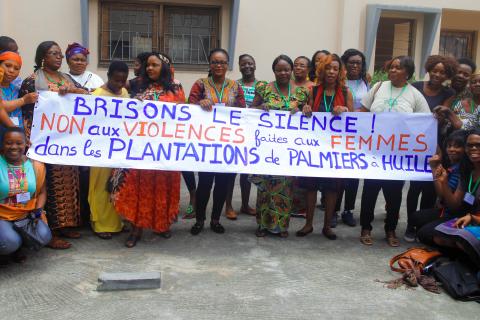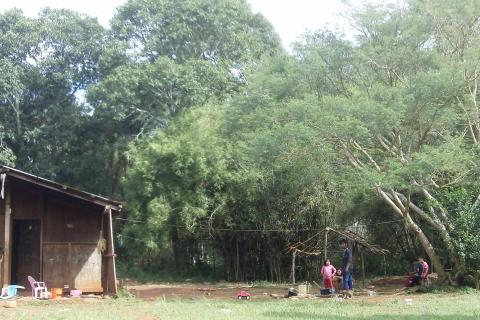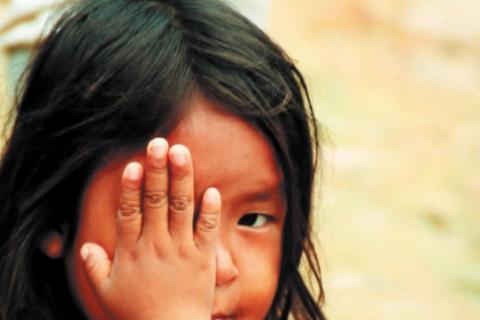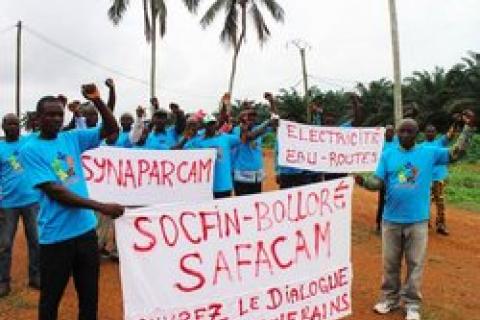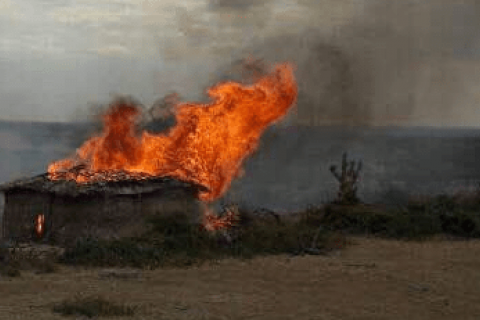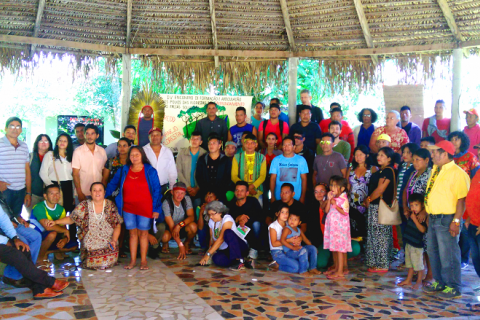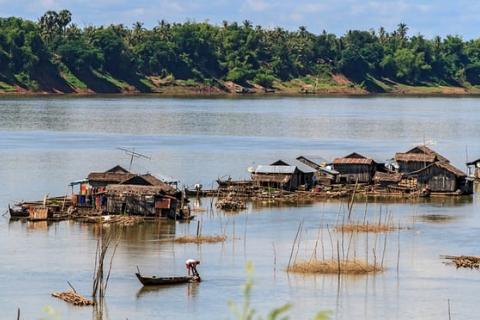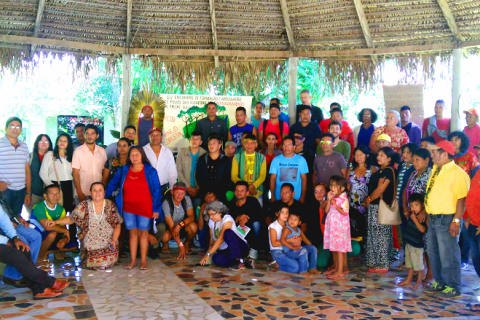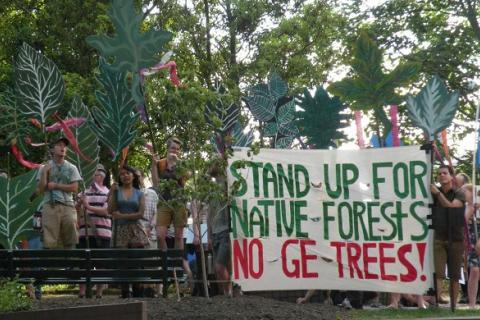We said it in Mundemba, Cameroon, we reiterated it in Port Loko, Sierra Leone, we re-affirm this in Abidjan, Cote d’Ivoire: the abuse against women in and around industrial oil palm plantations must STOP!
Other information
Available only in Spanish
In 2016, a TV station in France (Channel 2) aired a report that told the story of Vincent Bolloré, a businessman who heads the oil palm plantation company, Bolloré, a subsidiary of the multinational company, Socfin. The television report showed the social and environmental abuses committed in Cameroon by the company, Socapalm, another subsidiary of Socfin. Vincent Bolloré owns 38.7% of the shares of Socfin. In a clear intimidation strategy, the businessman decided to take the journalist to court on charges of defamation.
A report from Oakland Institute documents in detail the many rights abuses faced by the Maasai in the Ngorongoro and Loliondo regions of Tanzania. In recent years, hundreds of Maasai homes have been burned and tens of thousands of people evicted from their land in the name of conservation and safari tourism. Maasai from four villages in Loliondo sued the government of Tanzania in September 2017 for the right to return to their villages which have become part of a safari park.
From June 15-17, 2018, indigenous peoples and communities that live and work in forests gathered in Sena Madureira, Acre, to denounce the false solutions to environmental and climatic degradation that green capitalism proposes. They denounced projects that buy into the fallacy that it is possible to continue polluting the earth, water and atmosphere in one part of the planet, and “offset” this pollution by conserving forests in another region.
An article by Transparency International shows how the political establishment of Portugal—which should be managing the forest, territorial planning, and firefighting and prevention measures—is held hostage to influential business interests. According to the article, this explains why so many people die and so much area is destroyed by fires year after year.
A Chinese-backed plan to build Cambodia’s biggest dam could “literally kill” the Mekong river, according to a confidential government assessment seen by the newspaper The Guardian, which says that the proposed site at Sambor is the “worst possible place” for hydropower. The newspaper article states that dire impacts are predicted on river dolphins and one of the world’s largest migrations of freshwater fish, which in turn affect the many fisher villages that depend upon this river basin.
People from the forests gathered in Sena Madureira, Acre, to denounce the false solutions of green capitalism and demand their right to their lands.
The World Rainforest Movement (WRM) will use your data only to send you news
such as the WRM bulletin, action alerts, new publications, press releases, and other communications.
Transgenic Trees Will Expand the Disaster of Tree Plantations. Already in Chile monoculture plantations of pine and eucalyptus are producing terrible impacts on rural communities, on people’s health, access to water, agriculture and forests.
Demand Swedish Energy Agency to suspend future payments to Green Resources and cancel the deal for purchase of carbon credits!
